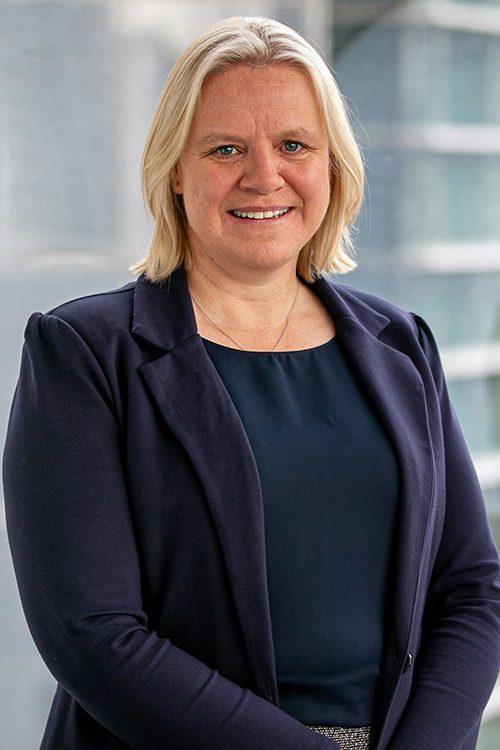Josh Frydenberg’s 2022 – 2023 Federal Budget was announced recently, with few surprises and a raft of initiatives of which many had been announced. While last year we saw the Government splashing cash around to stimulate the economy, this year they played it a lot safer and focussed on some key areas aimed at easing the increasingly high costs of living, and not overspending.
Some of the key announcements that may impact medical professionals are below.
1. Investing in digitising your business
Look at your planned investment in technology and digitisation.
In addition to the existing temporary full expensing (TFE) measures set to end on 30 June 2023, a new measure will provide SME businesses with a ‘boost’, that is an additional 20% deduction ($120 tax deduction for every $100 spent), for expenses on digital adoption. Some examples include portable payment devices, cyber security systems or subscriptions to cloud-based services.
The boost will apply to eligible expenditure of up to $100,000 per year. Additional information is required but based on examples provided in the Budget overview, this will effectively cap the tax saving at $25,000 per year (at a 25% tax rate).
Keep in mind that the additional deduction on any costs incurred in FY22 cannot be claimed until FY23 and applies for expenditure made from 29 March 2022 until 30 June 2023.
Also, remember that if you want to apply the TFE, the asset needs to be installed and ready for use by 30 June 2023, so watch out for those lead times on capital assets, and plan ahead.
2. Utilise incentives to upskill your workforce
Can you leverage the Skills and Training Boost for financial support to upskill your workforce?
SME businesses (those with less than $50m turnover) will get an additional 20% deduction for the cost of external training courses provided to employees. There is no cap, but the course needs to be delivered by a registered Australian provider (can be online). Costs will apply from Federal Budget night until 20 June 2024. In house training has been excluded. As most doctors are not considered employees, this will most likely apply to administration or nursing staff in practices.
Look at your planned investment in your employees. Keep in mind that the additional deduction on any costs incurred in FY22 I cannot be claimed until FY23.
3. Cost of living
Low- and Middle-Income Tax Offset and one-off Cost of Living Tax Offset
Individuals eligible for the Low- and Middle-Income Tax Offset (LMITO) will also receive an additional one-off $420 Cost of Living Tax Offset in the 2021-22 income year in addition to the LMITO. Eligible individuals will receive a combined tax offset up to $1,500.
Temporary fuel excise relief
The excise on petrol and diesel will be temporarily halved from 44.2 cents per litre to 22.1 cents per litre for the next six months to 28 September 2022.
One-off Cost of Living payment
A one-off income tax-exempt payment of $250 will be made to eligible pensioners, welfare recipients, veterans and eligible concession card holders in April 2022, to assist with increased costs of living.
Home ownership
The Government has announced an expansion of the Home Guarantee Scheme to 50,000 places per year for the next three years starting from the 2022-23 income year. On an annual basis, this will be allocated to 35,000 First Home Guarantees, 5,000 Family Home Guarantees and 10,000 Regional Home Guarantees.
Also, the maximum amount of voluntary contributions that can be released under the First Home Super Saver Scheme (FHSSS) will be increased from $30,000 to $50,000 from 1 July 2022.
4. Additional funding for health
Preparing for winter
The Government is investing $6 billion in its COVID‑19 health response to support preparations for winter (this supports COVID-19, influenza and other respiratory diseases), and to support Australia in dealing with any new variants. Funding is committed to vaccines, testing, vulnerable populations, health supply chains and public communication.
The cost of taking a COVID-19 test to attend a place of work will also not be tax deductible for individuals from 1 July 2021.
Mental health
A new National Mental Health and Suicide Prevention Agreement will be implemented to support Australia’s mental health. In 2022-23, the Government will invest $547 million in mental health services for young Australians, Aboriginal and Torres Strait Islanders, and people of colour.
Medicare
The Federal Budget has committed funding to increase the range of services included under the Medicare system. This includes services for the diagnosis of cancer, genetic testing and to support pregnant women’s health.
Pharmaceuticals Benefits Scheme (PBS)
From 1 July 2022, the Government will reduce the PBS Safety Net thresholds, resulting in an increase in the accessibility and affordability of medicines. Additionally, $2.4 billion will be invested over four years to increase and amend the listings on the PBS to include treatments for cystic fibrosis, spinal muscular atrophy and bowel cancer.
5. Changes to paid parental leave
The Federal Government will combine the two weeks of ‘Dad and Partner Pay’ with the 18 weeks of Parental Leave Pay to create a single scheme to cover up to 20 weeks of paid parental leave.
The single scheme will allow for eligible working parents to split the leave. It will also allow single parents to access an additional two weeks of paid leave. This provides much needed flexibility for both parents.
The income test will also be broadened to have an additional household income eligibility test.
6. Superannuation
Extension of the temporary reduction in superannuation minimum drawdown rates
The temporary 50% reduction in the minimum pension drawdown rates for account-based pensions (and similar products) has been extended for a further financial year to 30 June 2023.
Work Test reforms
From 1 July 2022, the Work Test will be removed for individuals aged 67 to 75 years in relation to non-concessional and salary sacrificed superannuation contributions. The Work Test will still apply for personal deductible (concessional) contributions.
For a full analysis of the 2022-2023 Federal Budget, see our detailed analysis here
Contact your local William Buck advisor to learn more.









